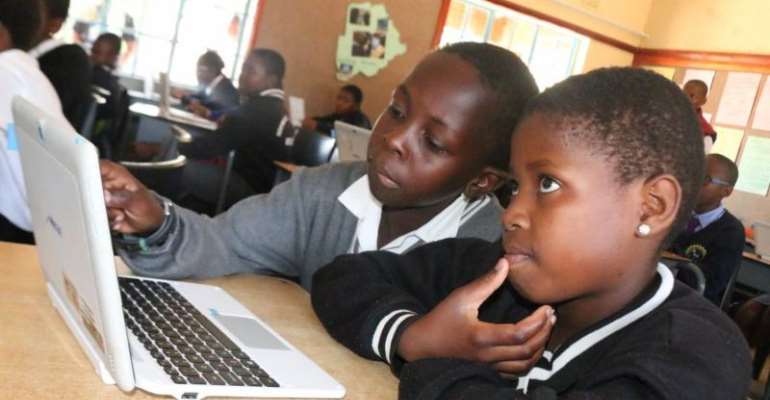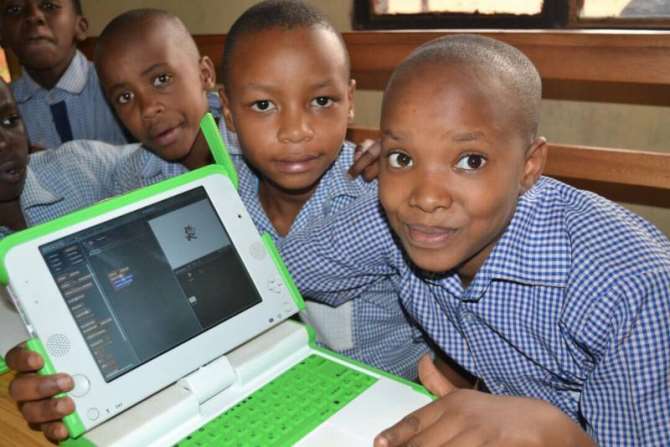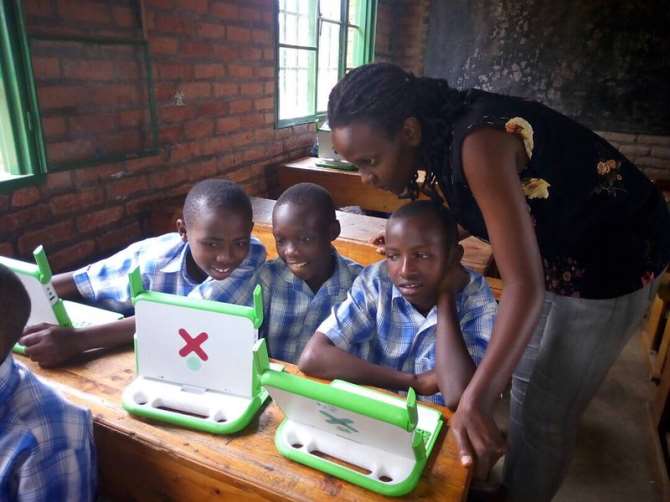1.3M young Africans learnt coding during Africa Code Week 2017
Continent-wide skills development initiative on track to achieve target of 5 million youth trained well ahead of 2025 deadline

Launched in 2015 by SAP CSR EMEA in partnership with the Cape Town Science Centre and the Galway Education Centre, Africa Code Week is an award-winning initiative that is now actively supported by UNESCO YouthMobile, Google, the German Federal Ministry for Economic Cooperation and Development (BMZ), 15 African governments, over 100 partners and 100 ambassadors across the continent.
Claire Gillissen-Duval, Global Project Lead for Africa Code Week, says: "We trained more than 79,000 youth in the East African region this year, of which more than 26,000 were girls. We also noted growing participation from countries such as Ethiopia with 155% more youth engaged than last year."
In 2017, Africa Code Week and key partner UNESCO joined the #eSkills4girls initiative launched by the German Federal Ministry for Economic Cooperation and Development (BMZ) to overcome the gender digital divide. The latter awarded 20 grants to 20 organisations, improving digital skills and employment perspectives for 8,259 girls and women in emerging and developing countries.
"With an average ratio of 43% female participation in coding workshops, Africa Code Week 2017 unveils a huge appetite for digital skills development among Africa's girls. Female representation in African companies in STEM-related fields currently stands at only 30%, requiring powerful public-private partnerships to start turning the tide and creating more equitable opportunities for African youth to contribute to the continent's economic development and success," says Gillissen-Duval.
With the highest engagement ratio of 1,622 youth per 100,000 population and a total of more than 390 000 introduced to coding during this year's edition, Cameroon wins the Africa Code Week 2017 championship. While Morocco's total engagement of 378,000 placed it second for overall participation, Mauritius sported the second-best engagement ratio of 1,545 youth engaged per 100,000 population. Botswana took third place with an engagement ratio of 1,168 per 100,000.
Key highlights from East Africa include:
* More than 79,000 youth were trained between 18 and 25 October
* Close to 3,600 teachers and trainers trained
* Female participation stood at over 45%
One of the key strengths of Africa Code Week is its focus on collaboration and partnership with a variety of public and private sector stakeholders. Key partner Google supports Africa Code Week as part of its own commitment to preparing 10 million people in Africa for jobs of the future, with several Google Grants awarded this year to initiatives that promote coding skills development in classrooms across the continent.
Governments have also seen Africa Code Week's immense potential in mobilizing youth and introducing them to the digital skills they need to build successful careers. This is the case in Tanzania where the government has identified technology based innovation and skills development as key drivers for the country's path to transformation. Presiding over the Africa Code Week launch in Dar es Salaam on 18 October 2017, Hon. Prof. Joyce Ndalichako, Tanzanian Minister of Education, Science, Technology and Vocational Training, thanked SAP and Africa Code Week partners for supporting the nation's efforts to boost STEM skills development for youth. "ICT is a key foundation that will lift Africa out of poverty in a sustainable manner and we look forward to empowering a new generation of digital innovators across Tanzania and Africa at large," she said. Organisations such as Women in Technology Uganda also leverage Africa Code Week to make coding more accessible to girls and ensure they receive equal opportunities at education. The initiative supported Africa Code Week this year by providing teacher training at two primary schools and one secondary school in Uganda.
According to Claas Kuehnemann, Acting Managing Director of SAP Africa, much of Africa Code Week's success lies in the strength and support of its partners and collaborators. "Over the past three years Africa Code Week has grown into one of the best-supported and most far-reaching digital skills development initiatives on the African continent, with a broad range of governments, NGOs, private sector companies, educators, students and scholars all contributing to empowering one of the largest and most youthful workforces on the planet. We extend our gratitude to everyone who made this year such a resounding success, and look forward to building on its best practices over the years to come."
For more information about Africa Code Week please visit http://africacodeweek.org/ . For information about SAP Africa, visit the SAP News Center. Or follow SAP and Africa Code Week on Twitter at @sapnews and @africacodeweek


